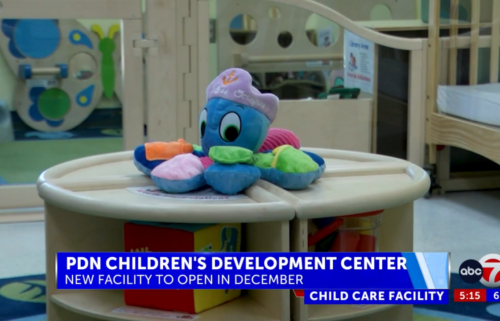Biden says he won’t scale back his priorities, but admits he’ll have to break up massive social safety net and climate bill
CNN
By Kate Sullivan, Maegan Vazquez and Jeff Zeleny, CNN
President Joe Biden admitted that he’s going to make big changes on his approach to a signature legislative goal as he took part in a formal news conference on Wednesday afternoon at the White House marking the end of his first full year in office.
Biden told reporters on Thursday that he believes Congress can pass “big chunks” of his sweeping social safety net and climate spending plan, Build Back Better, acknowledging that negotiators will have to “fight for the rest later.”
“Yes, well, it’s clear to me that we’re going to have to break it up,” the President said.
In particular, Biden indicated that he believes Congress can pass funding for energy and environmental issues, and that he has support from West Virginia Democratic Sen. Joe Manchin, a key moderate, on the plan’s early education proposals. In addition, he indicated that there’s “strong support” for the proposal on how the provisions will be paid for.
“I don’t think there’s anything unrealistic about what we’re asking for. I’m not asking for castles in the sky. I’m asking for practical things the American people have been asking for for a long time. A long time. And I think we can get it done,” he said.
He cited lower prices for on prescription drugs, expanded education funding and support for child care as popular provisions.
“I don’t know many things that have been done in one fell swoop. And so I think the most important thing to do is try to inform … the public what’s at stake in stark terms and let them make judgments and let them know who is for them and who is against them. Who is there and who is not there, and make that the case. That’s what I’m going to be spending my time doing in this off-year election,” Biden continued.
The President also acknowledged that passing his other legislative priority, voting reform, will be difficult. Still, he insisted that Democrats still have options to get it passed.
“It’s going to be difficult. I make no bones about that. It’s going to be difficult, but we’re not there yet. We’ve not run out of options yet. And we’ll see how this moves,” Biden told reporters during the news conference.
Biden touts year of ‘challenges’ and ‘progress’
In his opening comments, Biden said that “it’s been a year of challenges, but it’s also been a year of enormous progress.”
The President — who fielded questions from reporters as his administration struggles to contain the latest surge of the Omicron coronavirus variant and works to ease the economic anxiety gripping the nation — began his White House news conference touting how the administration has made strides in Covid-19 vaccinations, reopening the economy, creating jobs and lowering unemployment. But he also acknowledged the challenges facing his administration as he enters his second year in office. He said there continues to be “frustration and fatigue in this country” over Covid-19, reiterating that “while it’s cause for concern, it’s not cause for panic.”
The President conceded that his team should have done more to ramp up testing, but listed steps he’s taken to make kits more available, arguing that “we’re in a better place than we have been thus far, clearly better than a year ago.”
“I’m not going to give up and accept things as they are now. Some people may call what’s happening now the new normal. I call it a job not yet finished. It will get better. We’re moving toward a time when Covid-19 won’t disrupt our daily lives,” he continued.
In his opening remarks, the President also addressed the economic complications of the pandemic, including rising prices for consumers, saying, “We need to get inflation under control” and calling on the Federal Reserve to “bear down on fighting inflation.”
Biden added that he respects the independence of the Fed.
The news conference comes as the President heads into his second year in office — a midterm election year — after facing a number of recent setbacks. The centerpiece of his economic agenda has hit a roadblock in Congress, it is unclear whether the Democrats’ push for voting rights legislation will go anywhere, the Supreme Court struck down Biden’s vaccine mandates for big businesses and recent key economic indicators show record inflation.
Predicting Russia will invade Ukraine
Biden predicted a Russian invasion of Ukraine, citing existential concerns by the country’s President Vladimir Putin, even as he warned of significant economic consequences when such an incursion occurs. But he suggested a “minor incursion” would elicit a lesser response than a full-scale invasion.
Putin has amassed tens of thousands of troops on the Ukrainian border and appears poised to invade.
“I’m not so sure he is certain what he is going to do. My guess is he will move in. He has to do something,” Biden said, describing a leader searching for relevance in a post-Soviet world: “He is trying to find his place in the world between China and the West.”
Biden’s prediction of an invasion is the firmest acknowledgment to date that the US fully expects Putin to move after amassing 100,000 troops along the Ukraine border.
The President also said allies and partners “are ready to impose severe cost and significant harm on Russia and the Russian economy.”
That includes limiting Russian transactions in US financial institutions — “anything that involves dollar denominations,” Biden said.
He also warned Russian lives would be lost in an invasion, along with potential Ukranian casualties.
Biden speculated Putin was not seeking “any full-blown war,” but said he did believe the Russian leader was looking for some type of confrontation.
“Do I think he’ll test the West? Test the United States and NATO as significantly as he can? Yes, I think he will. But I think he’ll pay a serious and dear price for it.”
“He doesn’t think it will cost him what it’s going to cost him,” he said. “And I think he’ll regret having done it.”
Biden’s presidential news conference record
The President regularly fields questions from reporters after delivering remarks and during departures and arrivals at the White House, but he hasn’t held as many formal news conferences as his recent predecessors.
In his first year in office, Biden held nine total news conferences — six solo and three joint ones — according to data tracked by The American Presidency Project at the University of California, Santa Barbara. The last time he held a formal news conference was at the COP26 climate summit in Glasgow, Scotland, in November.
By comparison, President Donald Trump held 21 news conferences in his first year in office, but just one of them was solo and the rest were joint appearances, usually with foreign leaders. (In his last year in office, as the pandemic took hold, Trump held a staggering 35 solo news conferences.)
President Barack Obama held 27 news conferences in his first year — 11 solo and 16 of them joint. President George W. Bush held 19 news conferences — five solo and 14 joint, according to UCSB data. Then-President Bill Clinton held 12 solo news conferences and 26 joint ones, resulting in 38 news conferences in his first year in office.
This is a breaking story and will be updated.
The-CNN-Wire
™ & © 2022 Cable News Network, Inc., a WarnerMedia Company. All rights reserved.
CNN’s Kevin Liptak, Sam Fossum and Matt Egan contributed to this report.




